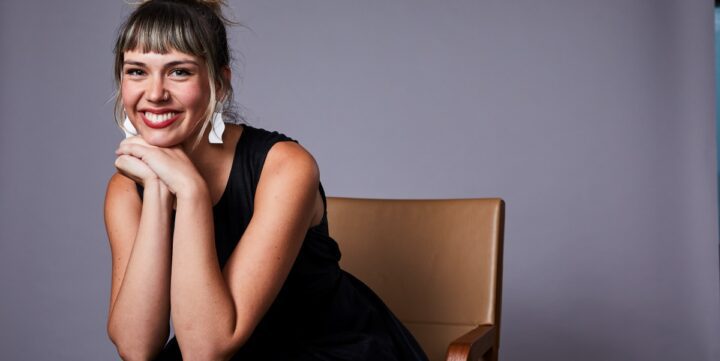How TABOO is Working to End Period Poverty
February 19, 2025
Breaking the Cycle
Despite significant advances in public health, period poverty remains a persistent and under-addressed issue in Australia—and worldwide. For those who menstruate, the cost and access to sanitary products is a burden that can erode their health, dignity, and overall well-being. While public discourse around menstruation has evolved in recent years, cultural taboos and inadequate support structures still lead to stigma and silence. In Australia, this problem is neither hidden nor rare: One in five people who menstruate struggles to access period products when they need them. The ramifications are profound, not just for physical health, but also for mental and social well-being. In this context, South Australian social enterprise TABOO is tackling period poverty head-on, by providing ethically sourced sanitary products and championing charitable initiatives, they have set a clear and urgent goal: to end period poverty in Australia by 2030.
For many clinicians, period poverty might feel like a social issue that sits on the periphery of day-to-day medical practice. After all, how often do conversations about menstrual products surface during a typical general practice consultation? The reality is that a significant number of patients—particularly adolescents, low-income individuals, and those in crisis—grapple with period poverty in silence. According to Share the Dignity’s 2021 “Bloody Big Survey,” 49 percent of respondents wore a single tampon or pad for longer than four hours because they could not access a replacement. This figure translates into grave health risks, including higher rates of bacterial vaginosis and, in rare but serious instances, toxic shock syndrome. Beyond the immediate medical implications, the emotional distress and shame surrounding period poverty can compromise a patient’s willingness to engage with healthcare services at all. Simply put, if people are too embarrassed to admit they cannot afford period products, they might also avoid discussing other health issues.
That is why the work of TABOO is so vital. Founded in 2017 by Eloise Hall and Isobel Marshall—an InDaily 40 Under 40 alumnus and the 2021 Young Australian of the Year, respectively—TABOO stands out as more than just a brand of period products. It is a mission-driven enterprise that funnels profits from the sale of their organic cotton pads and tampons into community education programs, advocacy campaigns, and direct product donations. Beyond standard retail operations, TABOO’s “Pad It Forward” initiative invites customers to purchase boxes of period products on behalf of someone in need. To date, the organisation has distributed more than 5500 boxes of donated sanitary items, assisting not only individuals but also domestic violence shelters, community centres, and remote communities. This model embraces both immediate relief and long-term change: relief, by directly providing essential products to people who cannot afford them; and long-term change, by reducing stigma and raising awareness of how expensive menstrual care can be over the course of a lifetime.
Strength to Strength
The newly launched TABOO Foundation further amplifies these efforts by enabling tax-deductible donations, thus opening the door to bigger philanthropic contributions and broader community support. These resources will help drive research into the causes and effects of period poverty in Australia, develop culturally safe menstrual education programs, and finance the expansion of free product distribution throughout public spaces. Part of the Foundation’s overarching ambition is to enhance menstrual literacy, ensuring that every young person, regardless of socioeconomic background, knows how to manage their periods safely and with dignity. If this sounds like a lofty goal, it is—but the urgency of the issue, and the potential for large-scale impact, justify the boldness.
One might ask: Why should GPs and other healthcare professionals feel a particular investment in ending period poverty? The short answer is that our responsibility as medical professionals extends beyond diagnosing and prescribing; it includes fostering equitable access to basic health necessities. Menstrual health is not a luxury—any more than clean water or nutrition are luxuries. When patients improvise period products with items such as socks, toilet paper, or sponges, they not only risk infection, but they also endure a significant emotional burden. GPs, among other supporting personnel, have a unique vantage point for addressing this problem. They see patients from all walks of life—some of whom may be quietly struggling to afford menstrual products, especially given rising living costs. By normalising the discussion of menstruation in clinical contexts, we can reduce stigma and pick up on early warning signs of period poverty.
Consider, for instance, a routine consultation with an adolescent patient presenting with abdominal pain or irregular bleeding. Often, these young patients may be in the early stages of menstruation without the resources or knowledge to navigate it effectively. With sensitivity and open-ended questions, a GP might uncover that this patient has been missing school due to inadequate supplies. Knowing where to direct them can be life-changing. Armed with information about TABOO’s Pad It Forward program or local support networks, the GP can discreetly offer solutions—whether it’s free product referrals or simply educating the patient and their caregiver on available community resources.
Additionally, clinics can stock free sanitary products on-site. While this may seem like a minor step, it can be a lifeline for patients who come in unprepared or are experiencing acute financial hardship. Posting clear signage or discreet brochures in waiting rooms about free period products or local charitable organisations (like TABOO) allows patients to self-refer without embarrassment. Meanwhile, healthcare providers can build alliances with community organisations by hosting co-branded awareness events or fundraising campaigns. The synergy between a grassroots organisation like TABOO and a local GP practice is powerful, as both are committed to improving health outcomes but approach the issue from different angles. Working together, they can reach more individuals in need, offer culturally safe education, and normalise conversations around menstrual health.
The Future of Period Poverty
Looking forward—medical professionals are also perfectly positioned to advocate for policy changes that facilitate access to essential care. They can champion systematic data collection on period poverty in our clinics, which can then feed into national research, further highlighting the magnitude of unmet need. In turn, these combined efforts—clinical, community-based, and policy-driven—create a more cohesive safety net for those at risk.
TABOO’s aspiration to end period poverty by 2030 is ambitious, but it is also achievable if multiple sectors unite behind this goal. In celebrating World Menstrual Hygiene Day (Wednesday 28 May 2025) and beyond, TABOO’s activism underscores that menstruation is a normal biological process deserving of mainstream medical and social support. Their evidence-based approach, which focuses on both immediate relief and long-term education, aligns with the preventive and holistic ethos of general practice. Supporting an initiative like TABOO, therefore, aligns with our core professional values: minimising harm, addressing social determinants of health, and ensuring that all patients—regardless of gender or income—have the resources they need to thrive.












